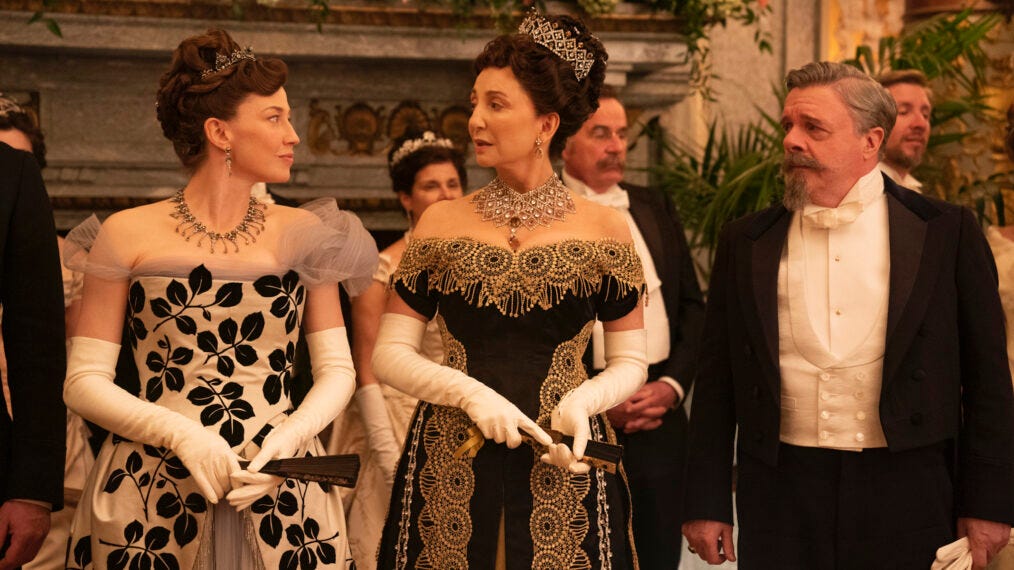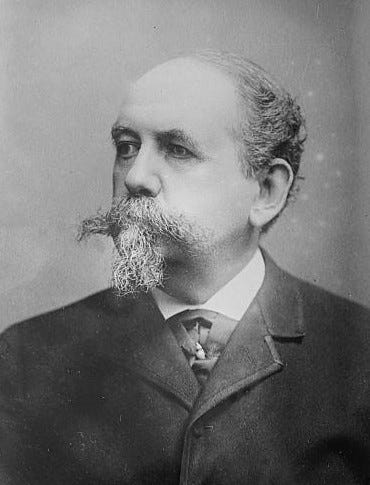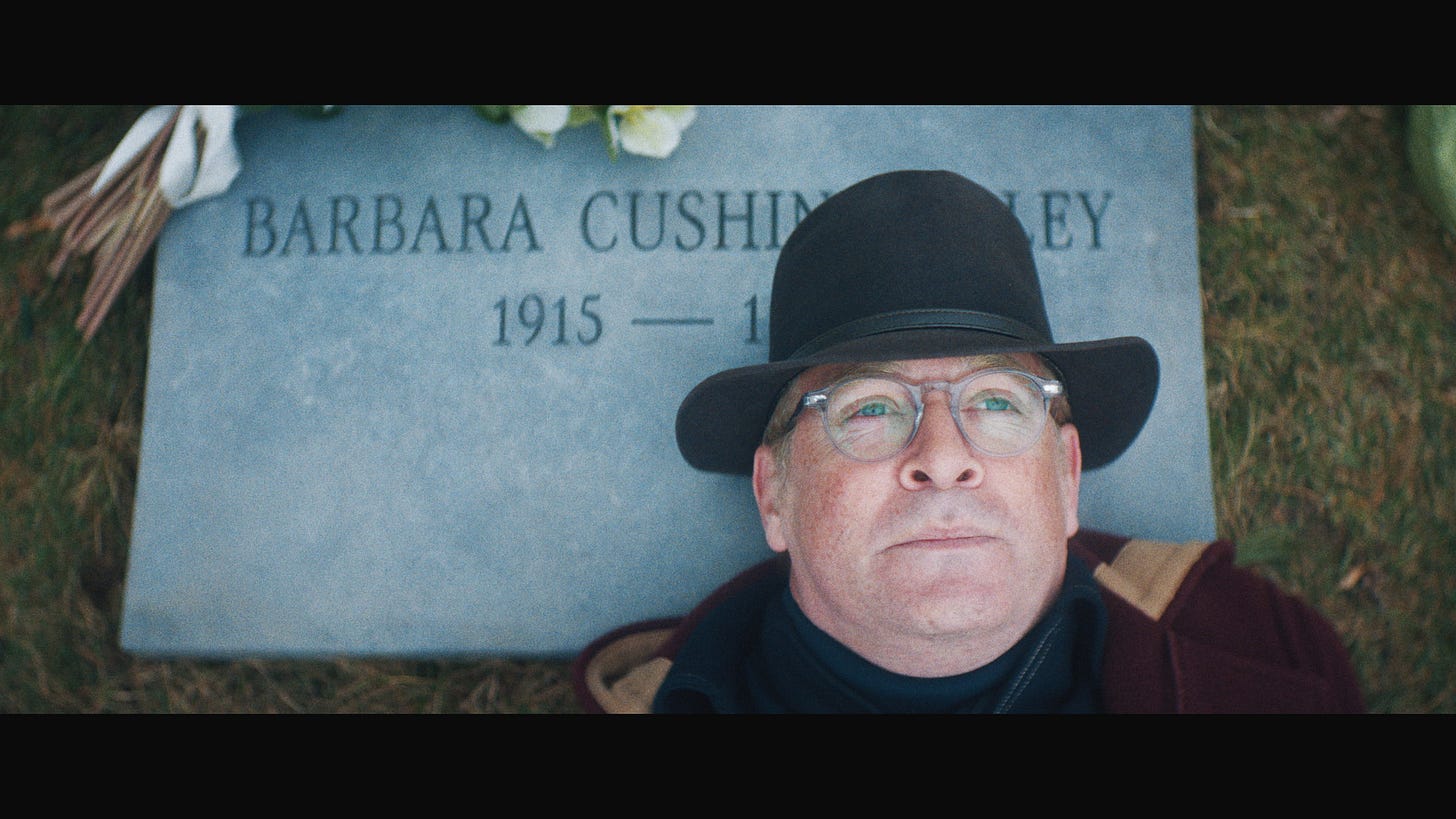Glamour, Gossip, and Queer Reincarnation in NYC
Capote, McAllister, and Me: A Trio of Parallel Tales
The idea of reincarnation is quite a polarizing topic. Some folks believe in reincarnation while others believe that once a body leaves this planet, so does the soul connected to it. I’m inclined to believe our souls travel through time and connect to other lives. I’ll never forget when I first moved to New York, I felt an immediate and deep connection to this deranged asphalt jungle like I have never had anywhere else before. It felt like I’d already been here, like I already experienced a whole life on this overpacked island. This connection mixed with déjá vu made me feel like I belonged and it heightened my belief in our souls traveling through time.
Of course there was some pop culture that also helped solidify this belief. I have been watching the latest season of the FX anthology series Feud, and I’ve been playing catch up on the second season of the MAX series, The Gilded Age—both take place in that aforementioned asphalt jungle of NYC but decades apart.
It’s like the essence of the city is so incredible that it becomes almost unreal. It’s grown so strong that over the years it intertwines the lives of the people who have lived here across generations, a kind of magic that no other city possesses.
The Gilded Age is a lavish drama series about the new money versus old money battle that took place in New York’s late nineteenth century. Essentially The Gilded Age is our country’s Downton Abbey, which makes sense, since the two period dramas were created by writer and producer, Julian Fellowes.
The character and real-life society figure, Ward McAllister, played by Nathan Lane, grabbed my attention the most, which is saying a lot in a sea of fascinating real-life folks and fictional characters. Ward was a Southern Dandy, someone—often a man—whose style is as impeccable as their demeanor and manners.

When Ward and Bertha Russell (Carrie Coon) were in the middle of a conversation, something started to click—I’d seen this man before. There were some differences—the clothes, the accents, the period—but the similarities were striking me too hard. I thought back to how I feel about our souls connecting as they travel through time, and I got it, Ward McAllister and Truman Capote—the man at the center of the latest season of Feud—are one and the same.
Both of these southern-born men were equal parts gentlemen of elegance and wit, and they hypnotized all that came into their glittering webs. Truman and Ward were transfixed with those who became trapped in them, especially the stunning and elegant women of their respective times. They both had everything going for them—talent, connections, and contagious charm—but their destructive sides would ultimately be what they were known for. These mouths of the South were monstrous gossipers who used their words and pens to turn on everyone who helped catapult their statuses.
Their books, Society As I Have Found It by McCallister and Answered Prayers by Capote—were tell alls about society, their lady friends who ran it, the liaisons of their well-known and wealthy husbands, and all the other secrets that were supposed to stay behind their gold plated doors. These books ruined their friendships with the women they adored and—perhaps more importantly—their standing in New York society.
While getting to know Truman and Ward— through Feud, The Gilded Age, and my research— I began to see myself in both of them, physically and beyond. I am a robustly built person (with a love of spilling sizzling tea) who was born and raised in the South and hails from a semi-societal Texan background—I too have long been fascinated by the dynamics of society. When I first saw Marilyn Monroe after renting a VHS copy of Gentlemen Prefer Blondes, at an elementary school age, it activated two things within me—my love of glamorous women and the idea of unattainability. You could say that watching her could be some of what brought to life the layers of identity that were resting within me.
Our queerness connects us even further, I identify as non-binary trans feminine. Truman was as out as a gay being could be in the mid-twentieth century and McAllister too is thought to have been a part of the LGBTQ+ community. In our straight circles, McAllister, Capote, and I are accepted…but somehow remain on the outskirts, outsiders always looking inside yearning for complete access and inclusion. This feeling we share of constantly being someone on the outside could play a part in HOW we seek acceptance and belonging in high society and other spaces.
Our similarities are many but one difference is glaring—unlike them, I have a strong sense of loyalty. These men lost the part of their brains that kept them from being true blue pals and confidants. I’m committed to standing by my friends and don’t have a need—or want—to ruin our friendships in the name of some kind of personal gain or social currency.
They called many their friends— Ward McAllister was friends with Cornelius Vanderbilt, and Truman Capote was friends with Lee Radziwill, Joanne Carson, and CZ Guest—but they each had one woman who would play the role of their favorite. These women would ultimately become their closest and most important relationships, not just because it kept them in the higher ranks of society but because there was an actual connection between these sophisticated women and their male paramours.
Ward McAllister was the right-hand man to Caroline Astor, the queen of Gilded Age New York, and Truman was best friends with former Vogue editor and wife of CBS founder Bill Paley, Barbara “Babe” Paley. They were accomplished, beautiful, and wealthy women who would create space for them in their circles and hearts. In return, Ward and Truman gave them their love and loyalty (for the time being).
I think their friendships were real because I have friendships that have similar undertones. As one of the very few trans femme people in the online vintage spaces, my friendships with the cis women in the vintage community are very important to me. Most have more followers than I currently have, but none of them have ever made me feel smaller or different. They always support me and in return, I support and am here for them. Societal friendships are based on loyalty and secrecy, they are almost mob-like on that level. So, for Truman and Ward to play such a dangerous game tells me they had such a self-destructive aspect to themselves that could not be contained.

After the publication of Ward McAllister’s book and the publication of the first few chapters of Truman’s, their swan dives out of society were swift and brutal. McAllister was able to pivot a tad—fashioning himself as a gossip columnist and reporting on those he once played with. Truman was able to find some community within the Studio54 crowd—but neither could capture the glory they once proudly flaunted.
Both men would die with very little love and essentially left the planet as they came into this life. Alone. Their stories are cautionary reminders of the consequences of betraying trust, something that is far easier to do in our time of social media, screenshots, and read receipts.
Across time, shared experiences bind individuals. Yet, some connections surpass coincidence, tangling souls together. When I think back to McAllister and Capote, I find echoes of my own journey—a Southern queer drawn to the allure of glamour and societal intricacies. I wonder if I am the third in this soul-connected trio but then I remember the crucial thing that sets us apart—my unwavering loyalty, a trait noticeably absent in their downfall. That distinction reminds me how important things like integrity are in preserving the relationships—and legacies— we leave behind.
Pop culture can be a mirror, especially when it includes the stories of people who actually existed. It can reflect parts of ourselves and show us traits that we do, and do not, want to possess. Although the parallels between myself, McAllister, and Capote are there, I choose to take a different path to steer clear of all the mess they ultimately ended up in.
Living in New York City can feel like the same stories are being lived by the same people just in a different generation, but the goal is to create your unique legacy. To leave our own marks in this world different from those we might intersect with, and make sure new stories resonate with the next soul long after our seasons are over.
Thank you so much for reading Hi Shelli! This piece was written by a guest writer on my weekly newsletter! I love to collaborate and work with other dope writers as a way to support each other in indie media. I hope you enjoyed and please don’t forget to check out their work by clicking on their bio below!
As always, all reviews are in front of the paywall and if you like what you read and are on a trial I hope you consider becoming a paid subscriber <3






